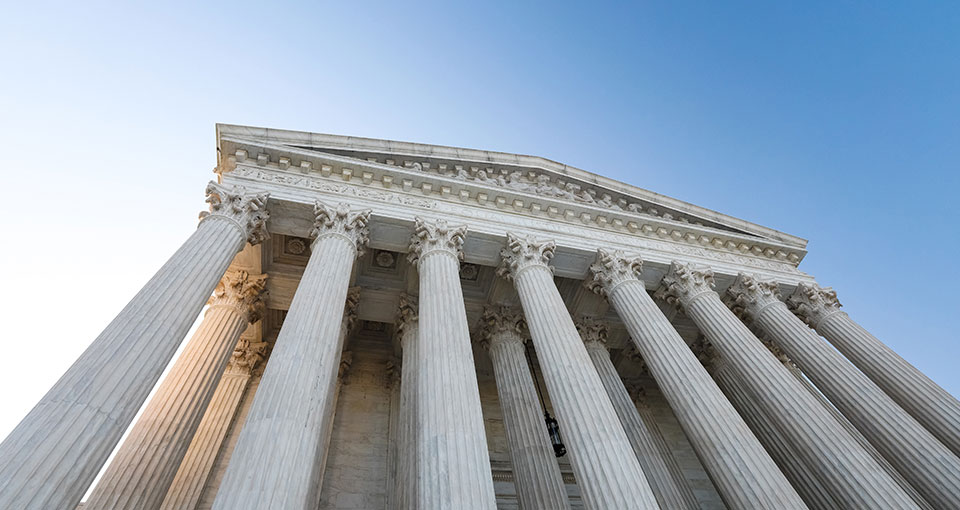
Navigating the Ethical Current :: Conflicts of Interest in the Tripartite Relationship (Part Three)
By Amy Elizabeth Stewart
Part Three—Defense Counsel’s Ethical Obligations
Contemplating the conflicts of interest imbedded like landmines in the tripartite relationship, the Texas Supreme Court has clearly articulated defense counsel’s obligations under Texas law. Nearly 40 years ago, the Texas Supreme Court addressed these issues in the Tilley case. Employers Cas. Co. v. Tilley, 496 S.W.2d 552 (Tex. 1973). The standard is surprisingly simple. The lawyer appointed by the insurer to defend the insured owes a duty of undivided loyalty to the insured. In Tilley, extreme facts highlight the ethical issues.
Tilley
When an underlying lawsuit was filed against the insured, Joe Tilley, the insurance company hired counsel to defend him. The insurer then filed a declaratory judgment action against Tilley, seeking determination that Tilley’s late notice defeated coverage. While representing Tilley, defense counsel simultaneously provided services to the insurance company, developing evidence adverse to Tilley on coverage issues and did not advise Tilley of the conflict of interest. The insurer used evidence developed by defense counsel against Tilley in the declaratory judgment action, raising “serious questions involving legal ethics and public policy[.]” Tilley, 496 S.W.2d at 557.
Confronted with these egregious facts, the Tilley court held unequivocally that defense counsel owes the insured “the same type of unqualified loyalty as if he had been originally employed by the insured.” Tilley, 496 S.W.2d at 558 (emphasis added).
- [C]ustom, reputation, and honesty of intention and motive are not the tests for determining the guidelines which an attorney must follow when confronted with a conflict between the insurer who pays his fee and the insured who is entitled to his undivided loyalty as his attorney of record.
Id. at 558 (emphasis added).
Quoting the American Bar Association National Conference of Lawyers and Liability Insurers – List of Guiding Principles, the Tilley court articulated the following principles regarding ethical issues in the tripartite relationship, now known as the Tilley doctrine:
- IV. CONFLICTS OF INTEREST GENERALLY—DUTIES OF ATTORNEY. In any claim or in any suit where the attorney selected by the company to defend the claim or action becomes aware of facts or information which indicate to him a question of coverage in the matter being defended or any other conflict of interest between the company and the insured with respect to the defense of the matter, the attorney should promptly inform both the company and the insured, preferably in writing, of the matter and the extent of the conflicting interest[.]
- V. CONTINUATION BY ATTORNEY EVEN THOUGH THERE IS A CONFLICT OF INTEREST. Where there is a question of coverage or other conflict of interest, the company and the attorney selected by the company to defend the claim or suit should not thereafter continue to defend the insured in the matter in question unless, after a full explanation of coverage question, the insured acquiesces in the continuation of such defense[.]
Tilley, 496 S.W.2d at 559. Tilley further affirmed the following ethical parameters:
- The insurance company has a duty to advise its insured of conflicts.
- A non-waiver agreement does not relieve insurer of duty to inform regarding a specific conflict.
From defense counsel’s standpoint, failing to disclose any potential conflict to the insured—the client—breaches the duty of undivided loyalty. Beyond disclosure, defense counsel also owes the insured a duty of confidentiality and may not reveal to the insurer information relating to the defense of the insured unless the insured consents.
Traver
The Texas Supreme Court again addressed the tripartite relationship in Traver, analyzing the respective roles of the parties and concluding that the insurer is not vicariously liable for the misconduct of an independent attorney selected to defend its insured. State Farm Mut. Auto. Ins. Co. v. Traver, 980 S.W.2d 625 (Tex. 1998). In that case, State Farm retained separate lawyers to represent two insureds named as defendants in an automobile case. Settlement attempts failed, the case went to trial and the jury found one defendant insured 100% liable. In subsequent litigation against State Farm, the insured defendant argued that not only had her defense counsel committed malpractice by failing to attend key depositions, but that State Farm orchestrated the malpractice to avoid Stowers liability.
The Traver court considered the relative roles of the insurer and defense counsel in the tripartite relationship, concluding that vicarious liability turns on whether the principal has the right to control the agent with respect to the details of the conduct. Defense counsel, as an independent contractor, has discretion regarding day-to-day details of conducting the defense and is not subject to the “client’s” control. Because the lawyer owes his client unqualified loyalty, he must at all times protect the interests of the insured if those interests would be compromised by the insurer’s instructions. In fact, a Houston court of appeals found that “this vesting of control and responsibility in the attorney necessarily precludes an insurer from exercising control over the attorney’s representation of the insured to the degree necessary to justify the imposition of vicarious liability.” Taylor v. Allstate Ins. Co., 2011 Tex. App. LEXIS 2418, at *8 (internal citations omitted). Under these circumstances, the insurer cannot be vicariously liable for the lawyer’s conduct. Where defense counsel is staff counsel on the insurer’s payroll, rather than an independent contractor, a different outcome may be warranted. See William Barker, Unauthorized Practice of Law Committee v. American Home Assurance Co.: How Many Clients Does Insurance Defense Counsel Have, and How Can You Tell?, 2009 EMERGING ISSUES 3219, at 21-22 (“even though a Texas insurer is not vicariously liable for the errors of outside counsel, who are independent contractors, it presumably would be vicariously liable for errors of employee counsel”).
In any jurisdiction, defense counsel must ensure that he is well-aware of the ethical standards that govern his representation of an insured (or, in some states, his dual representation of both the insured and the insurer).
